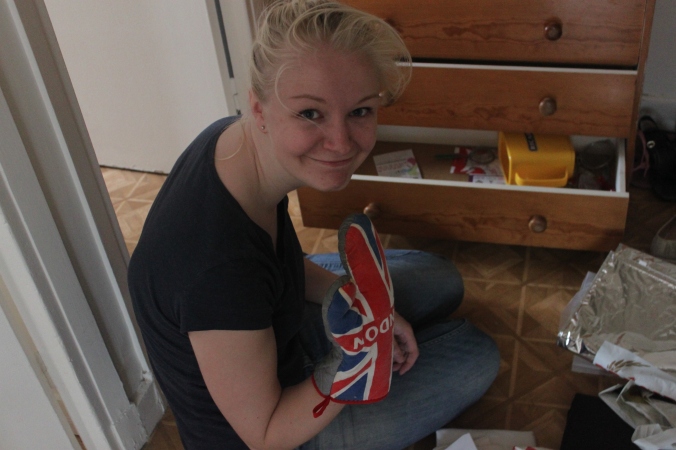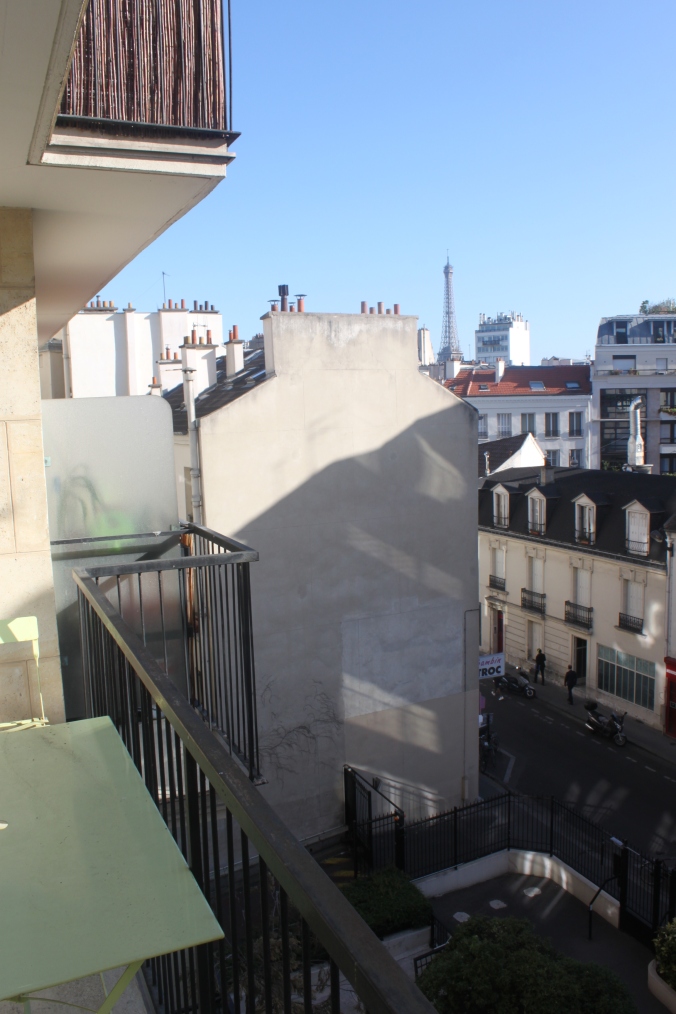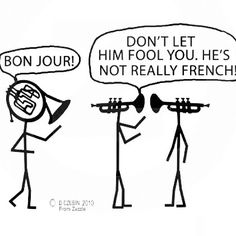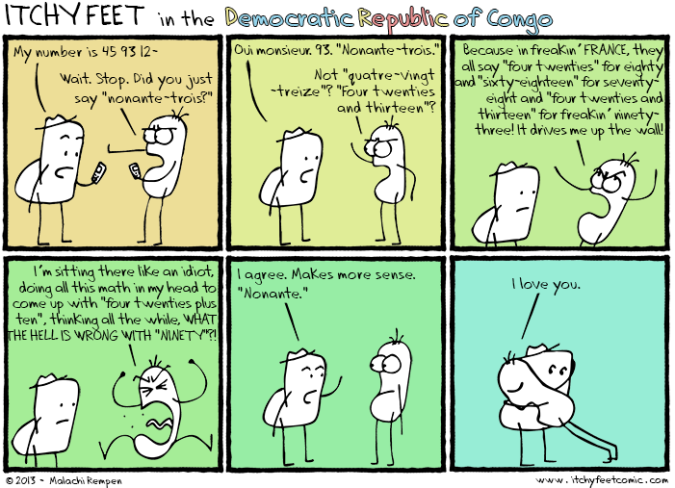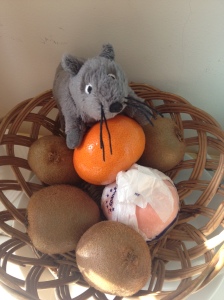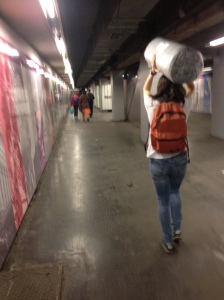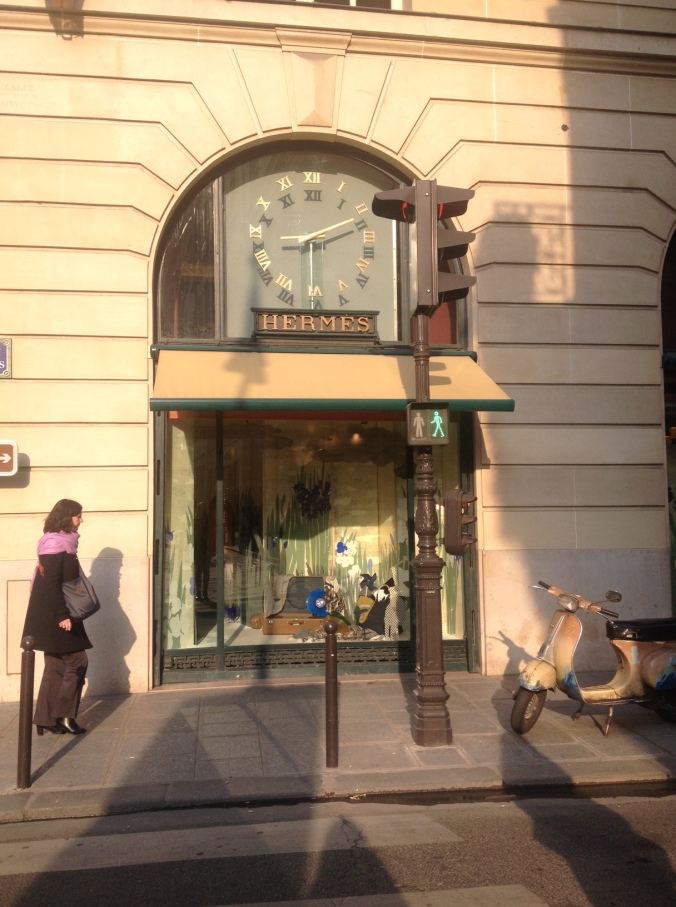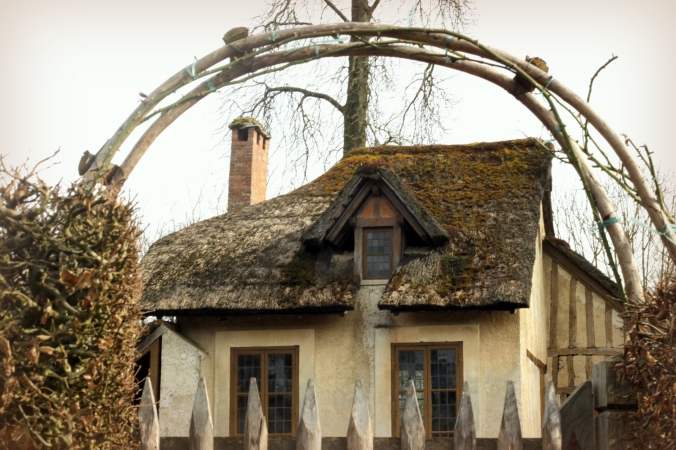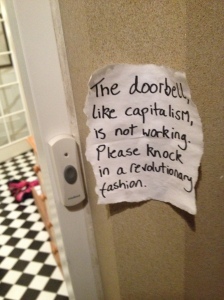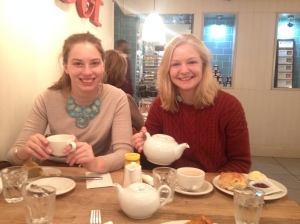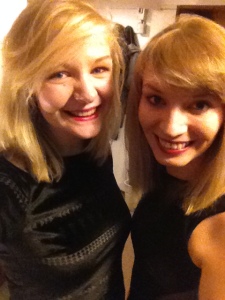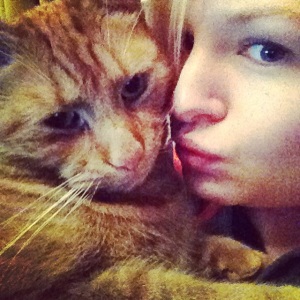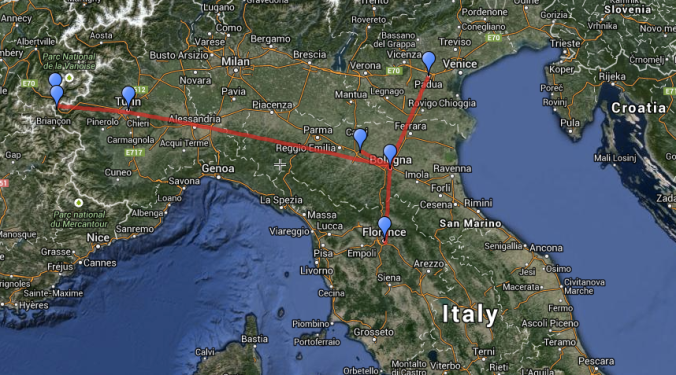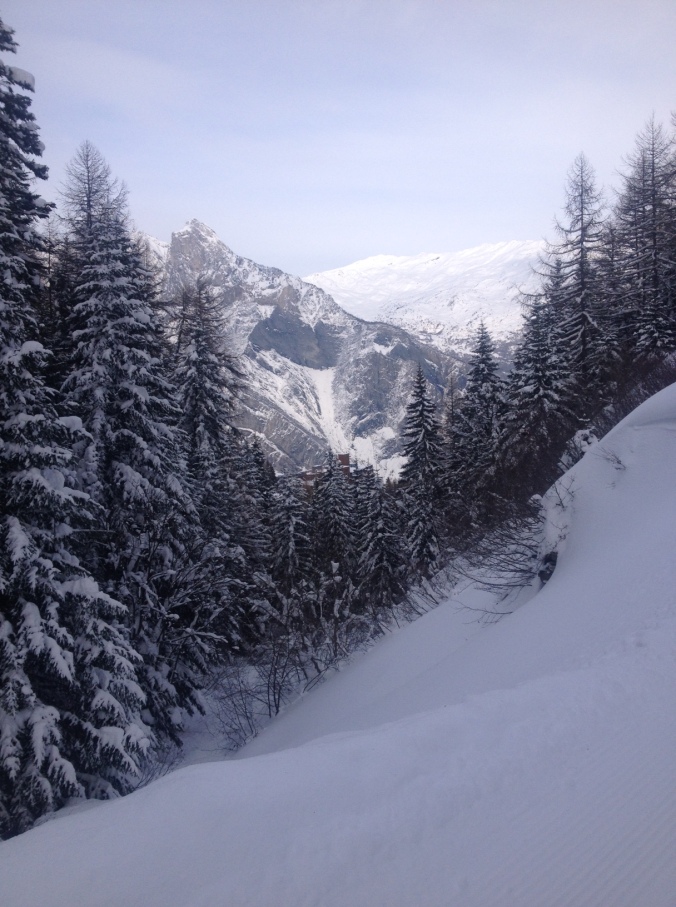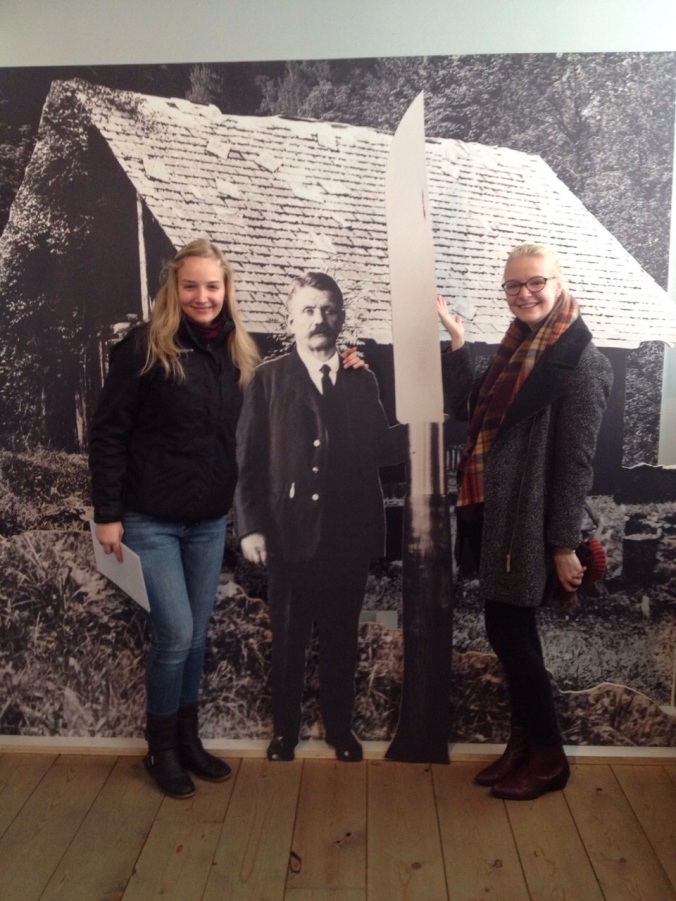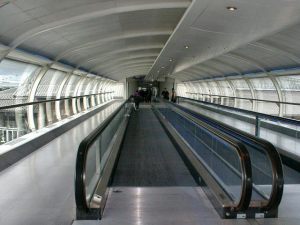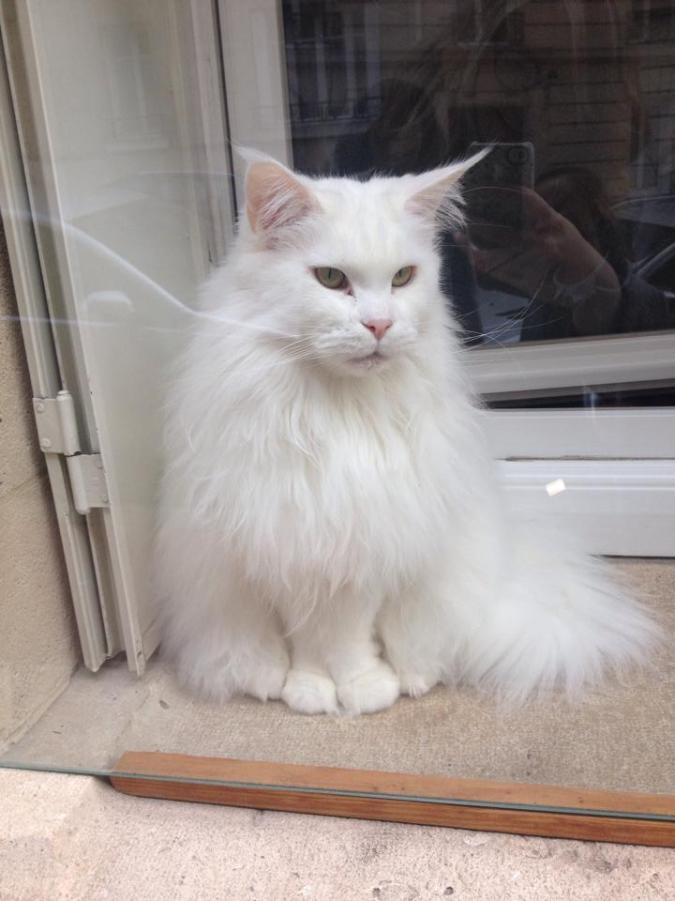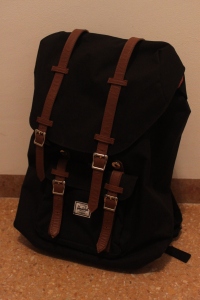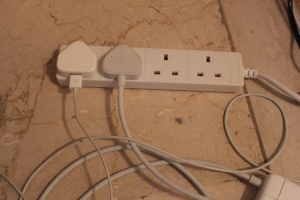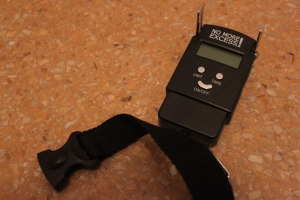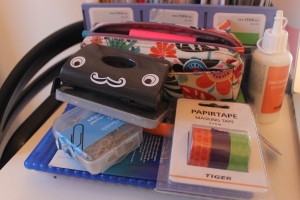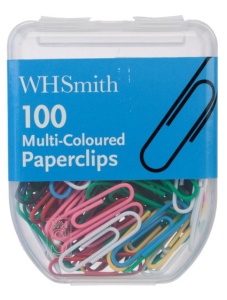The biggest lesson I’ve learnt from this shaky video, filmed throughout our last month in Paris and quickly cobbled together back home, is that I really need to get some sort of camera stabiliser. The second lesson is that it was a wonderful, wonderful, wonderful place to live for half a year. Adieu.
student
This is the way the year ends, not with a bang but my belongings in a clingfilmed box
Kneeling on the dusty floor of terminal 2E at Charles de Gaulle airport, surrounded by my worldly belongings and trying desperately to shove half of them into a cardboard box, I was struck by my failure to have nailed this whole travelling lark. Confusion over the requirement to separate my luggage allowance into more than one case meant I had lugged a 39kg one across Paris, only to find out it was far too heavy for the baggage handlers to carry- and fair play to them, this valise was lourde.
And yet, despite making me feel like I really had learned nothing this year, my unforeseen forage through my possessions hit me with a wave of nostalgia. The oven glove I’d bought in Monoprix to replace the frankly ugly one the apartment came with, the baby blue trousers I wore on my first day in the office, far too many orange bags to muster, my Navigo card, its edges gently frayed by time and pockets, faded books purchased from the bouquinistes along the Seine. Little scraps of Parisian life, gathered together in my bag, and now spread inelegantly all over an airport floor.
The whole situation was so laughable that I couldn’t help bursting into giggles at regular intervals. I wouldn’t have been too surprised if I were approached by security for suspicious behaviour at that stage, a girl stood alone with a sagging suitcase and a cardboard box covered in airport luggage wrap, wearing a straw hat and a leather jacket, laughing uncontrollably.
The box, the suitcase and I were all happily reunited and made it home yesterday, which means my year abroad has officially come to an end. I’ve signed the forms and closed my bank account, cancelled my phone contract, and returned home. As quickly as I had made my little life in Paris, and in Bologna before that, I have unmade it again. Setting up homes on such a regular basis has made me realise what I really need to feel at home, not just materially (although that requires 39kg worth of stuff, to be quite precise), but also more personally, and it is not a lot. Access to good pastry, coffee, friends, rectangular pillows, a decent sofa, time to write, sunshine.
If you had told me 11 months ago that I would be feeling quite so nostalgic now, making such hazy lists of loves lost, I’m not sure I’d have believed you. I had heard the stories from students in the year abroad about what an ahhh-mazing time everyone had on their year abroad, and they had made me nervous and panicky, unsure I could live up to this feat everyone else seemed to manage. But I think that the rosy glow of I did it, when you can say “why yes, I did live in this little flat in Paris when I was 21” comes quite a lot later in the game.
Essentially, what I am trying to say is the beginning of the year abroad is a bit rubbish, and I think that is true for everyone, or at least everyone I have spoken to. Under the shadow of your expectations, it can be a very lonely and daunting place, until you make it into a home. But I did. And Paris was one of the best homes I’ve ever had.
Paris is somehow big and small all at once, a patchwork of little bits of city that never feels too overwhelming. Its arrondissements each have their own characters, and are filled with their own characters, and it has been an absolute pleasure to get to know them over the past 5 months. Its buildings are never too high to suffocate you, the Eiffel Tower literally shines out like the North Star to guide you home, and its pastry is plentiful and delicious. I did not expect to fall for Paris the way I did, but I truly loved living there. It was a very easy place to make a home and a life, even if the paperwork was tiresome (I’m sorry, I could not avoid mentioning the paperwork in my final blog. Have I ever told you how much paperwork there is??).
Well, voilà, there you have it. I travelled south, and my skin turned warmer– although it didn’t turn brown, unless you count my mucky knees from whatever is on the CDG terminal floor. I travelled south and spoke Italian and French, ate extremely well, voyaged around on trains, buses, planes, metros and even a giant helium-filled balloon, made friends, made lists and made tortellini. If this is the way the year ends, with me looking back on it and smiling like I did at the contents of my cardboard box, then I’m very happy with that.
Taper GCSE French dans la mille
Taper dans la mille; to nail it
I’m not usually one to give up at the first hurdle, but there are a few things that, after a length of time spent learning French too depressing to count, I’m just not sure I’m ever going to quite get right.
The first is “Bonjour”. It shouldn’t be difficult; it’s the only French word most non-speakers know, and it doesn’t have a particularly tricky pronunciation, but I don’t seem to be quite nailing it. I say it at least 5 times during the journey from the front door of the office to my desk (security guard, receptionist, other lift-users, smiley craftswoman in the workshop, colleagues in office), and every time wince slightly at how it just doesn’t quite seem French enough. And I know it’s not, because whenever I walk into a shop and proudly proclaim greetings, the reply often comes in English- and I’m making such an effort to look Parisian (black on black on black) that I’d like to hope it’s not just my appearance that marks me out as a foreigner. It is simply a difficult word to get absolutely spot on. It reminds me of the time I coquettishly asked a French friend where in France my accent came from, did I sound like tutors I’d had from Paris or the sunny south or the Alps? “Angleterre”, she honestly giggled.
Next, numbers. I’m sorry France but sort them out. At least Swiss/Belgian/Canadian French has made an effort inventing septante, huitante, nonante for the numbers 70, 80 and 90, because apparently this was seen as a mad thing to do by the French themselves, who’ve settled for sixty-ten, four-twenties and four-twenties-and-ten. Fair enough.
Except no, it’s not fair enough. Because they also insist on listing their phone numbers in neat little pairs, and so when I face my fear of the ringing office phone and try to take a number, what I’m actually doing is a difficult exercise in complex mental maths.
Imagine the scene in English:
“I’ll ask her to call you back. Could I take your phone number?”
“Yes, sure. It’s zero six, sixty-twelve, four-twenties-two, four-twenties-thirteen, sixty-ten-eight.”
I’m getting (marginally) better at it, but it’s still an elusive skill; when someone says sixty-twelve, for instance, I’ve already written a 6 before I realise that actually sixty plus twelve is 72 so I need to cross out that 6 and write 7 and oh no they’ve said the rest of the number and hung up.
Given that I haven’t mastered these basic skills, despite having first been taught them an embarrassing number of years ago, I have managed to achieve that goal of all goals; my level of French fluency actually beginning to interfere with my English. The problem is, it’s not happening exactly as I’d like; it’s the azerty keyboard that’s made its way into my unconscious. I get home to my safe qwerty laptop and type almost all my words with a Q where an A should be, try to hold shift to write a full stop or number, and get confused when the accented characters are no longer where they’re supposed to be. Maybe I’ll achieve full keyboard fluency in my remaining three months here. Though I’ll mostly just be happy if I can say how many days that is in French- four-twenties-thirteen sounds about right.
Untourist Paris: Sink plug shops are not in the guidebook
There are certain parts of Paris that don’t quite make it into the guidebooks. I’m not talking about secret bars and cafés; I’m afraid I don’t yet have any regular Parisian haunts that I’ve discovered and am now revealing to you. I mean the shops where you buy an ironing board, where you can find a replacement sink plug, and insider knowledge of which metro, train and bus are required to get to the nearest IKEA. It’s not very glamorous, this part of life, but it is a fact of life, and one that is quite the struggle when you don’t know which shops to go to.
For this is the problem with these particular Parisian addresses not being listed in the guidebooks, or on Trip Advisor: I had no idea where to go. Aside from IKEA, that stalwart of reasonably priced duvet sets and small fluffy rats to place in the fruit bowl à la Ratatouille, I did not know where to start. It sounds an easy thing to find, a replacement plug, but where do you start? It’s hard enough in a familiar city sometimes, but in one you don’t know at all, and that’s foreign, it’s basically impossible. After around 2 hours of searching, I found one, but then 4 days later found there was a shop literally 2 minutes from my door that sold them cheaper. C’est la vie.
The obligatory trip to IKEA, meanwhile, was much more fun because I got to go there with Rebecca, my chère chère flatmate, sharer of copious bottles of €3 wine and fellow woman on the quest for cheap tea towels. Though I missed the ease of a trip there in my mum’s car (not to mention the generosity of her purse), our little Swedish-tinged adventure to Thiais actually turned out to be quite amusing. I think making our way through the bus, train and metro back, Rebecca with a rolled up mattress on her head, me with an enormous holdall of household essentials/small fluffy rats, may be one of the highlights of my time here so far. It probably still won’t make it into the Lonely Planet top 10, mind. But traversing the underground maze that is Invalides, replacing the lyrics of Destiny’s Child Independent Women Pt. 1 (‘This Jömna on my head? I bought it!’) to the tune of our purchases, is still going firmly in the mental happiness bank.
The one shocker of the trip was the complete lack of what I would term normal pillows. The French sleep on square pillows. Square. This was completely incomprehensible to Rebecca and I, given that it is just not a useful shape for a pillow to be. You have one of two options; first, to lie completely on the pillow thus elevating your shoulders too- defeating the point of the pillow which is to maintain your head higher than the rest of your body and prevent neck strain. Alternatively, you can just lie on the bottom half as if it were a proper rectangular pillow, but this forces your toes off the end of the bed and frankly seems like a waste of good feathers. Having lived with these things for almost a week, I don’t think I’m ever going to be a convert, but I can attest to their usefulness in sitting up in bed in the morning. Maybe the French just adorent breakfast in bed.
This week I also started my first ever proper office job. I won’t be blogging about my work for reasons of professional integrity (oooooh I have professional integrity now), but for those of you that are interested, I will be working as an intern in communication and image for Hermès until the end of July. I will say, though, that my first day lunch in the Jardin des Tuileries overlooking the Place de la Concorde, with the Eiffel Tower glimmering in the midday sun, was not half bad. Levons notre verre à la vie parisienne.
A château, a hamlet, and a Parisian apartment
C’est fait; I have moved to Paris. I am living in Paris in the springtime (cue music). One day in the near future I will be able to say sentences that start with ‘when I lived in Paris’. I’ll know ‘this little place in the 15è arrondissement’. I might even develop a truly Parisian sneer. I’m already on board with their uniform of black jeans layered with a black top and black jacket, and maybe the odd bit of grey on a very joyous occasion. It’s surreal. I feel a little bit like I’m playing at being a Parisian adult and at some point someone will collect me and tell me it’s home time, but until then, I’m rolling with it.
Yesterday I visited the château of Versailles. It was as grand and overbearing as one might expect from Europe’s largest château, although in many ways I preferred its vast preened gardens to the almost blindingly gold interior. You can rent a golf buggy to drive around Versailles, which I was massively keen to do until I found out you have to be 24 for the privilege. Not a proper adult yet, then. The perfect age to visit Versailles, I have calculated, is 24 or 25, the only two years where you can get in for free if you’re an EU citizen, and get to whizz a golf buggy around the gardens.
Better still than the gardens themselves was Marie-Antoinette’s little hamlet, located in the North of the Versailles complex. What I loved most about this was not exactly the buildings of the hameau, cute and rustic though they were, but the entire concept behind them. Frivolous Mazza (as her friends definitely didn’t call her) escaped bustling Paris to the château of Versailles, then had to escape the château to a smaller massive palace, the Grand Trianon, then to the Petit Trianon, and finally jacked in the whole living-in-a-castle business. To be fair it must have been terrible. Instead, she ordered that a hamlet be built for her in the gardens, so she could play at being a peasant. Like the best game of pretend ever, only she was 28 at the time so you’d think she could have plenty of fun riding one of the golf buggies instead.
This hamlet was built on almost exactly the same site where a previous village was razed to build the Grand Trianon, so it seems like a lot of hassle could have been saved by just going to live there in the first place. No wonder they chopped her head off.
Back in Paris, I’m trying to apply Mazza’s love of the simple life hameau philosophy to our little slice of Parisian real estate, which is, er, basic, to put it generously. The area is wonderful, the local boulangerie does fabulous croissants, and we have TWO local fromageries. But the flat is fairly typically Parisian; there are many things that do work, but in a slightly “quirky” way. They quirk. Not bad, just not brilliant. Still, I suppose this is to be expected of a huge city on a minuscule student budget, and mostly I’m just happy to be living with a good friend, near cheese. I’ve got a week to get myself in order, then I’m off to work on Monday, joining la foire d’empoigne (rat race, or literally the funfair of grabbing) as I metro off to my actual job. Dressed in monochrome, bien sûr.
In which I am resolutely not abroad
I’m about to begin this blog post with the phrase ‘Sartre once said’, and I feel that an opening gambit quite that smugly academic needs to come with a content warning. This was it. Brace yourselves.
Sartre once said the following:
‘Trois heures, c’est toujours trop tard ou trop tôt pour tout ce qu’on veut faire.’
(Three o’clock is always too late or too early to do anything.)
If, like me, you struggle with this hour of the day, at least you now know you are in good company. With me and old Jean-Paul, struggling to fill the most awkward time of the day, too late for lunch and too early for dinner, too late to achieve anything of note, and too early to start thinking about evening plans. So, the perfect hour for a blogpost. I did some research (well, someone else did and I read their research), and it turns out that 4pm on Friday is the most retweetable time of the week. It’s Wednesday, but I reckon if I get this completed soon I’m probably in with a shot at going viral.
My lack of commitment to the blog has been due to the fact that I’m very much not abroad at the moment. I’ve been in the UK for almost 3 weeks now, spending much of that time, and much of my dwindling money, on trains and planes. I’ve flitted from Leicestershire to London to Edinburgh to Cambridge, and had on the whole a fabulous time.
During these journeys, I have found the British almost excessively polite. Perhaps I am being pre-emptively Parisian, but I did question the need for one woman to apologise to another in the following awkward exchange, complete with translations for the non-Brits reading this:
A: ‘Hello, I’m so sorry to bother you but I think you might be sitting in my seat’
(You’re definitely sitting in my seat. I checked at least 4 times. That’s my seat.)
B: ‘Oh right, terribly sorry, I’ll see if there are any others free.’
(I’m desperately hoping the embarrassment of watching me drag all my belongings along to another carriage will force you to give up your seat.)
A: ‘Yes I think it is mine, would that be alright?’
(It’s still definitely my seat. Wonder if I should brandish my seat reservation ticket at her now. It hasn’t quite reached that stage yet. I’ll just hold it within her view so she knows I have one.)
B: ‘No problem, I’ll find somewhere else! Sorry!’
(Bitch.)
I thoroughly enjoyed listening to this exchange: I knew I was home. London was busy and exciting, Edinburgh crisp and pretty, Cambridge was exactly as Cambridge always has been and probably always will be. If there’s one thing you can say about it as an institution, ‘reliably constant’ is not a bad estimation. I didn’t like the entire anonymous year group of freshers who looked far too comfortable in the JP, and had no idea I belonged there too, but I did like Father Ted Society and cream tea at Fitzbillies and curry at India House and a dependably disappointing night out at Life.
I had to get my fix of the UK, and I feel I managed that pretty well. Keeping up the year abroad mentality of just doing stuff made it a whole lot of fun; I went to the Ice Bar in London, an exhibition on gaming in Edinburgh, to the Garden Barn for paninis by the fire with my parents, and even had a stint back on the radio on my friends’ show. Unfortunately, I couldn’t shake the other year abroad mentality of mentally taking an hour off the time of whatever people said to me, which meant I was often confused by how early people said they were eating dinner or going for drinks. Perhaps I’m not struggling to speak English because my Italian is just so amazing, but I’m totally fluent in clocks.
Despite the time issues, it really has been a fantastic three weeks. Tomorrow I move to Paris. That’s a big sentence, but this time the terror that struck me when I moved to Bologna is long gone. Adventure is out there!
4pm is also long gone, so perhaps this post won’t be breaking the internet anytime soon. In which case, I might as well sign off with a cheesy note, safe in the knowledge that few people will read it. There’s nothing like a there-and-back-again to make you realise what you’ve got back home. And I’ve got a lot.
Gallivanting and gadding about
As readers of my previous blog post will know, I have now completed my exams and thus pretty much finished the first half of my year abroad, a feat that seemed practically unobtainable back in the tricky days of early September. I’m in a weird transitionary period, full of goodbyes and hellos, packing and unpacking, paperwork and… paperwork. If you’re annoyed about how much I mention paperwork, think about how annoyed I must be having to complete it all. Very.
It’s a strange time. In some ways I feel like I should have already left Bologna; I have nothing left to do here, save get a few forms signed (there’s that old chestnut again!). And yet it will also be strange to leave the streets I have walked and now know so well for new, unknown ones.
I feel under pressure to make the most of my last few days here, but I’m unsure exactly what that should mean. Thanks to the bucket list I made back in those aforementioned tricky early days, I’ve done pretty much everything I wanted to do here. The major unticked box is “Go for a run in the Giardini Margherita”. Naïvely, I thought that 5 months was plenty of time in which to go for one run: a realistic goal, I thought. Not the case.
Instead, I’ve opted to spend my remaining days gallivanting and gadding about, as shrewd title-readers will have already guessed (no prizes, I’m afraid). The map below represents the journeys I’ve made in the last couple of weeks, all thanks to Italy’s wonderful, clean, efficient, relatively cheap train network, and some dodgy buses at the French border:
Part of the reason for all this voyaging was that it was my 21st birthday a couple of weeks ago, in honour of which Hannah and I travelled to Turin for a lovely weekend filled with delicious bicerin- a sort of heavenly rich mocha. On the subject of my birthday, I’d like to thank all those wonderful friends and relatives who posted cards and gifts- my mother even managed to send a banana cake over. I cannot understate the sheer loveliness of receiving these things at a time when I was worried this most important of birthdays might be a little out of sight, out of mind. It seems it was neither, and for this I am very grateful.
After Turin, Valérie and I popped over the border to stay with our friend Agathe in her beautiful house in a valley of the French Alps, in a small town called Saint-Jean-de-Maurienne. The major purpose of this trip was to partake in some winter sports action, words that made me pretty hesitant but also excited. I am not le type sportif by any stretch of the imagination: I failed to go for a single run in 5 months, after all. And yet here was a fabulous opportunity to try something new, in what was to become the best value skiing holiday ever thanks to Agathe’s kind loan of absolutely all the kit I needed, no accommodation costs, and my terribleness at skiing- I didn’t even need to buy a ski pass the first day as the flat slopes were quite enough for me.
Very kindly, Agathe even agreed to teach me to ski. Living in the Alps, she has been skiing for about as long as she has been walking, and is terribly graceful on the slopes. Graceful is perhaps not the word I would choose to describe my debut. “Bambi” might be more like it. Being taught in French was also far funnier than I could have imagined. Panicked yells of ‘je peux pas bouger!’ when I was trapped in a snowy ravine (not a ravine…but felt like one) were probably terribly amusing to passersby/skiersby. I have chosen to blame my main failing (not being able to turn right) on my confusion between the similar-sounding phrases ‘tout droit’ (straight on) and ‘à droite’ (to the right). When the muffly effect of days of powdery snow is taken into account, I like to think that even a French person would struggle with this. Still, by the end of my time in France I was able to successfully navigate my way down a piste without toppling over, a feat I am immensely proud of. Skiing is an odd thing: there is so much kit that it is anything but natural, but the views from the top of those frosty mountains made it all worthwhile.
The other big highlight of this trip was visiting the Opinel museum. For those unfamiliar with the name, Opinel is an artisan producer of beautiful sharp knives with wooden handles. I am a big fan of the obscure museum. They are cosier than other museums, you learn something completely different, and you get the sense that the curators really care about your visit because they are so passionate about the subject themselves. The curator of this one was a member of the Opinel family, and appeared in the short documentary we sat and watched as well as hanging about in the gift shop. The entire museum was clearly meant to advertise the brand, and it worked; to Banksy’s disdain, I’m sure, my Exit Through the Gift Shop left me money-poorer and knife-richer.
My time in Italy has also left me much money-poorer, but richer in almost every other sense. An Italian film I saw here, Benvenuti al Sud, sums it up quite well, if I can permit myself the poetic license to substitute ‘al sud’ for ‘in Italia’:
‘chi viene in Italia piange due volte: quando arriva e quando se ne deve andare’
-Whoever comes to Italy cries twice: when he arrives, and when he has to leave.
“It’s not a long holiday. It’s a short life.”
This title is perhaps the most precise summary of the year abroad that I have written so far. Which is a shame, because they aren’t actually my words. This phrase was the inspired thought of dear Rebecca, as we sat together on a metro in Paris, pondering the confusions of the year and wondering how we might ever find somewhere to call home there.
It is a short life. You have to go to a new country and essentially create yourself as a bureaucratic, systematic, (HYDROMATIC) human being there, a process that basically involves lots of forms. Lots. More than you can imagine. I’m talking a metric shit ton of forms. A short life contains just as many forms as a full-length life, just in a much shorter space of time. It’s form density. There is a home to find, bank account to open, phone contract to sign for, plus friends to make, supermarkets to find, favourite cafés to discover, language to learn, train network to decipher. All things that are already a part of your current life, but that you have to do all over again in a new country for it to ever feel like home.
Unfortunately from a paperwork point of view (and it’s surprising how fast this becomes your primary point of view), I had decided to split my year abroad. But happily, Rebecca had been equally naïve, and even more happily, our second placements were both to take place in Paris. And so, whilst the weight of forms hung heavily over me as I jetted off to Paris last week, it was lifted by the comfort that at least this time I wouldn’t be alone whilst getting my life in order. Almost falling off the metro due to the weight of your suitcase is a bit tragic and embarrassing alone, but with a friend it’s mostly just funny, especially when it’s the friend doing the falling (sorry Bec).
I cannot mock her too harshly because I made a much greater error shortly after arrival at Paris Charles de Gaulle, the largest and most bizarrely empty airport I’ve ever been to, in accidentally abandoning my rucksack on a bench. This rucksack contained my laptop, money, phone, but most crucially a huge amount of, you guessed it, forms, without which I might as well have got straight back on the next flight to England. I was convinced that, in the 10 minutes before I realised it was missing, it would almost certainly have been blown up by a bomb squad, but to my great relief and some quite impressive traversing of floorscalators, it was exactly where I left it, forms and all.
And thus, generously hosted by Walter, our flat hunt commenced. Paris is a horribly cruel city in which to find an apartment. Everywhere you look there are apartments. Taunting you, because none of them seem to be actually available to rent, and certainly not for a short period to students. The subject of how to find a Paris apartment has been covered in numerous blogs, and so I’m not sure I have much to add to the wealth of advice out there except my own anecdotes.
The very worst flat-viewing experience we had was also the first. Having wildly underestimated the size of Paris from our map, we thought we would stroll from the Eiffel Tower down to the south-east of the 5th arrondissement, which was a nice idea until it started raining chats et chiens and we realised that Paris is actually pretty sizeable. Not only had the landlord told us the wrong address, but when we arrived we were surprised (naïvely, I now realise) to find that there were other potential tenants viewing it too. Within a minute of entering, these two jeunes hommes had declared that they were willing to take it, and would it be okay for them to send their paperwork that afternoon? We exchanged a glance and quickly left, hot-footing it to the nearest McDonald’s. For the free WiFi, I tell you. And okay, also for a McFlurry and a small cry.
This was probably the lowest low, however, apart from a time where a woman on the phone would not stop repeating “c’est pas pratique!” (It’s not practical!) when we called to enquire about her apartment, where one person would have to traverse the other’s bedroom to get to their own. This was clearly listed in the advert, and so I’m not sure why this lady was quite so keen on insisting on the impractical nature of her apartment, or who exactly she thought it would be practical for, but I quickly gave up and moved on.
Eventually, we found our luck with an advert posted on the announcement boards at the American Church in Paris. This was something we’d read about but that I’d hardly believed could actually be a source of success, but we’re really happy with our newfound home, even if we haven’t moved in yet. More details and photos to come when we have, but for now I shall just share my own personal point of glee- it has a balcony with a view onto the Eiffel Tower. I feel like I’m winning the short life game already.
However, one big hurdle jumped and I remembered that I still didn’t really count as a person in France because I didn’t have any of the human being numbers that my new forms required. A phone number. A social security number. A bank account number. Not only does each of these things take a good hour of research, another very decent hour of queuing, and a conversation with an uninterested French person to sort out, but you are somehow supposed to intuitively know the order in which to get them. I couldn’t get a bank account without an address, nor a SIM card without a French bank account. It is a horrible bureaucracy trap, especially because the French bloody love forms. They adorent forms. When opening my bank account, I was asked for a photocopy of my landlady’s ID. To be clear, I wasn’t opening the account for her. This was just something they wanted 3 copies of.
Whilst we’re at it, why does everybody want 3 copies of everything? I understand one for them, one for me, one for… who? It remains one of the great mysteries of our time. I can only conclude that somewhere in the middle of rural France there is a mad aristocrat called Monsieur Bureaucratie, to whom everyone sends their third copies. He then proceeds to fill his great country chateau with them, basking in a room filled with forms, and the warm, inky scent of photocopier paper.
There are no shortcuts to the successful short life, but luckily there are friends, food and cheap wine. Not to mention beautiful cats. Paris, you’re next.
Repacking and Returning: What I’ve Learned
In the midst of packing to go home for Christmas, for which I’ve had to pay Ryanair for an emergency extra suitcase, I’m beginning to get a good handle on the things I’m glad I brought with me and the stuff I might as well have left at home. The extra suitcase is partly for Christmas presents, and, admittedly, partly (mostly) for clothes I’ve bought out here. But I am still aware of the vast amount of things I brought that just weren’t necessary and wasted my precious, precious luggage allowance. Hence I have decided, in all my newfound wisdom, to create an exciting* TOP TEN of things to bring!
*excitement not guaranteed or even particularly expected.
1. Decent rucksack
My rucksack has served me very well throughout my time here. Mine is a Herschel and makes excellent hand luggage, with a pocket for my laptop and comfy straps and padding on the back. The bonus of bringing a rucksack as hand luggage rather than a carry-on means that Ryanair will never ask you to put it in the hold when the cabin gets full, so you needn’t worry about being front of the queue at the gate, and can just breeze onto the plane like the well-seasoned traveller you might possibly become. It’s also good for uni, day trips, nights away at friends’, picnics, hikes, storing plentiful snacks etc.
2. British plug adaptor and a plug extender
This was a genius idea that unfortunately I only had a couple of weeks after my stay began. You avoid having to buy numerous adaptors if you just buy one, and plug an extender into it. Look at all those pleasing British sockets! Just like home!
3. Handheld luggage scales
Not a very exciting one, but basically unavoidable if you want to squeeze the most value out of your heinously expensive baggage charges. Don’t forget to take it with you so you can weigh your stuff again when you come back. Mine even has a reassuring smiley face- though it’s not much good when I realise my suitcase weighs 5kg with nothing in it and my limit is only 15kg.
4. Painkillers
For some unknown reason, these are horrifically expensive in Europe, and given that they’re about 20p a box for supermarket own brand versions and weigh practically nothing, it’s worth just packing as many as you can. Within reason. Try not to look like a drug mule…
5. Basic stationery
My definition of ‘basic stationery’ is quite different to most people’s. I couldn’t face the idea of being parted from my 24 coloured fineliners for 4 months so I brought them with me. Even if you don’t suffer from quite the same levels of stationery addiction as I do, having a few pens, highlighters and paper will serve you well you in your first few weeks of chaotic bureaucracy and paperwork.
6. Paperclips
I’ve put this one on the list separately because it is of vital importance if you have an iPhone/other tricksy smartphone model. It’s impossible to open the SIM card slot on the iPhone without a paperclip or similar implement. Bring one with you every time you need to change countries and thus SIM cards and avoid my scenario of scanning the floor like a magpie with an eye for sharp things on the floor in Stansted terminal, searching desperately for a hair pin or a loose staple or ANYTHING that would allow me to switch cards and call my mum to come get me. I ended up paying £3 for 125 gold paperclips in WHSmith. Avoid this. Bring a paperclip.
7. Spotify Premium
This really isn’t essential but is a very nice companion to travelling. Students can get Spotify Premium for £4.99/month, which allows you to listen to an unlimited amount of music and even download playlists and albums to your phone or computer for listening offline. Apologies if I sound too much like an advert but I just really love Spotify. It’s great. And make a playlist of joyous tunes before you leave, ready for darker days.
8. Gravy/Tea/Marmite/insert homely food as appropriate
This is a bit of a tricky one as you don’t know which foodstuffs you won’t be able to find/will miss terribly until you’ve already arrived. Some important ones, to my mind, are gravy, Marmite, tea, squash, (get one of those super-concentrated Squash’d things), Cadbury’s hot chocolate and custard creams. If you have obliging visitors/parents willing to post you a box of what you’re craving when the time comes, even better.
9. Currency card
These are pretty nifty even if you are just travelling short-term. Essentially, you are able to load the card with Euros either online or using an app, and then spend on it or take cash out as if it were a normal debit card, except you are never charged for these services. The exchange rate is usually not bad, and it saves you paying charges to your English bank every time you want a bit of cash. I’ve also found it quite good for budgeting, as you can load the amount you think you’ll need for a couple of weeks and then make sure you stick within your means. More money to spend on clothes that you don’t have the luggage space to bring home.
10. Lowered expectations
Perhaps this seems like a depressing piece of advice. It isn’t meant to be. I only mean that the year abroad is a much hyped phenomenon, and you will probably come with expectations that are impossible to meet. The beginning of the year will inevitably be crap. It will not remain that way, and it may indeed turn out to be the best year of your life, but waiting for it to happen will not help you in the slightest. Don’t expect too much; wait and see what there is to explore on your arrival, then make it your own by doing it how you want to. Like all good things, it takes a bit of time and effort, and it’s not worth being frustrated with yourself for not having the Great Time® you’re expecting to have at the very beginning. Andrà tutto alla grande; but give it a chance.
Advice duly dispensed, time to get cracking on the mountain of mince pies that must be scoffed before tomorrow’s flight home! I am so excited I think I might cry with joy when I see Stansted- an unusual reaction to an airport, but one I feel is very appropriate. Buone feste!
A Brit Abroad: The Double-Edged Sword of Englishness
A British Social Attitudes survey carried out in 2013 saw a drop in the number of people who would describe themselves as ‘very proud’ to be British. What were we, then, if not ‘very proud’? Eight in ten said they were at least ‘somewhat proud’ to be British, a statement I really love. Quietly asserting a secret bit of patriotism in this way is just so, well, British. Whilst the whole idea of British patriotism has been rather tainted, especially in recent years, by its hijacking by certain political parties and far-right groups, most of us are happy being ‘somewhat proud’. We like to moan about all sorts of minor issues, but deep down we’re rather content with ourselves.
I’m getting nostalgic for all sorts of weird things, some of which I’m not even sure I liked that much in the first place. Things like the shape of a 50 pence piece, the word ‘juniper’, muddy fields, Bradgate Park, and the concept of a cone of chips. Are these things really that exciting? I’m not sure anymore, but I know they’re a part of my heritage. I’m somewhat proud of it.
And yet, when abroad, many of us feel quite a lot less proud when our Britishness is horribly evident in the games of Charades and Articulate that we’re forced to play in attempting to speak the language. Don’t know the word for earplugs? Don’t worry, just say ‘the things you put in your ears when you’re trying to sleep and there is some noise outside’ (a generous translation- a truthful one would have contained many more grammar errors), and the assistant will grimace and hand them over. At least it’s good practice for Christmas.
As a country, we’re pretty rubbish at learning foreign languages. The classic excuse is that ‘everybody speaks English anyway’, and whilst I desperately want to turn around to the people that claim this and say “no they don’t so get your head in that grammar book”, it’s kind of true. English is an extremely marketable language, and one that most European children now study intensely at school, so most people probably do speak at least a little bit of English anyway.
Therefore, when abroad we end up being immensely privileged. If you visit a museum in almost any other country in the world, and they have been so kind as to provide a translation of their reading materials, they will translate them into English first. Because even if a visitor from, say, France, is visiting Italy, they probably will have some knowledge of English. And so it is that everyone else has to read in a second language they are assumed to have, whilst we swan about and are spoilt with information handed to us in our native tongue.
I was talking with a friend from Germany about how much I hate dubbed films, and my struggles to find a subtitled version of the new Hunger Games film to watch. She pointed out that I probably only hated them so much because most films I saw were already in my language. A privilege I had never really noticed because I never really had to think about it.
There are lots of these privileges. Museums, films, tours, restaurant menus, signs: you name it, they’ve probably already translated it into English for you. Often quite broken, unwittingly amusing English, but a valiant attempt at English all the same. And it sounds so ungrateful to describe this massive, massive blessing as being actually a curse-in-disguise, but sometimes, when you’re really desperately trying to make the effort to actually learn a country’s language and all they seem to want to do is help you to avoid doing so, it’s quite demoralising.
Anyone who has attempted to speak a foreign tongue abroad has probably been confronted with the classic helpful waiter/waitress/shop assistant who replies to you in English, happy for the chance to practise as well as being just a little bit smug that they are doing you a grand favour. So they think. I wish I could wear a big sign that says ‘PLEASE SPEAK TO ME IN ITALIAN. I’M TRYING.’ But in the absence of cardboard and a big pen (where are all the stationery shops in Italy?), I just have to smile and keep ploughing on in the hope that they will be the first to crack in the battle of language wits.
If I have one aim for the year abroad, it is not for people to stop trying to speak to me in English. I am visibly foreign and not ashamed to be so; I am ‘somewhat proud’ of my heritage. No, the aim is thus: when I reply in Italian, and later in the year, French, they will be so struck by my mastery of the language that they will immediately revert to it. And that’s how I’ll know I’ve won.
